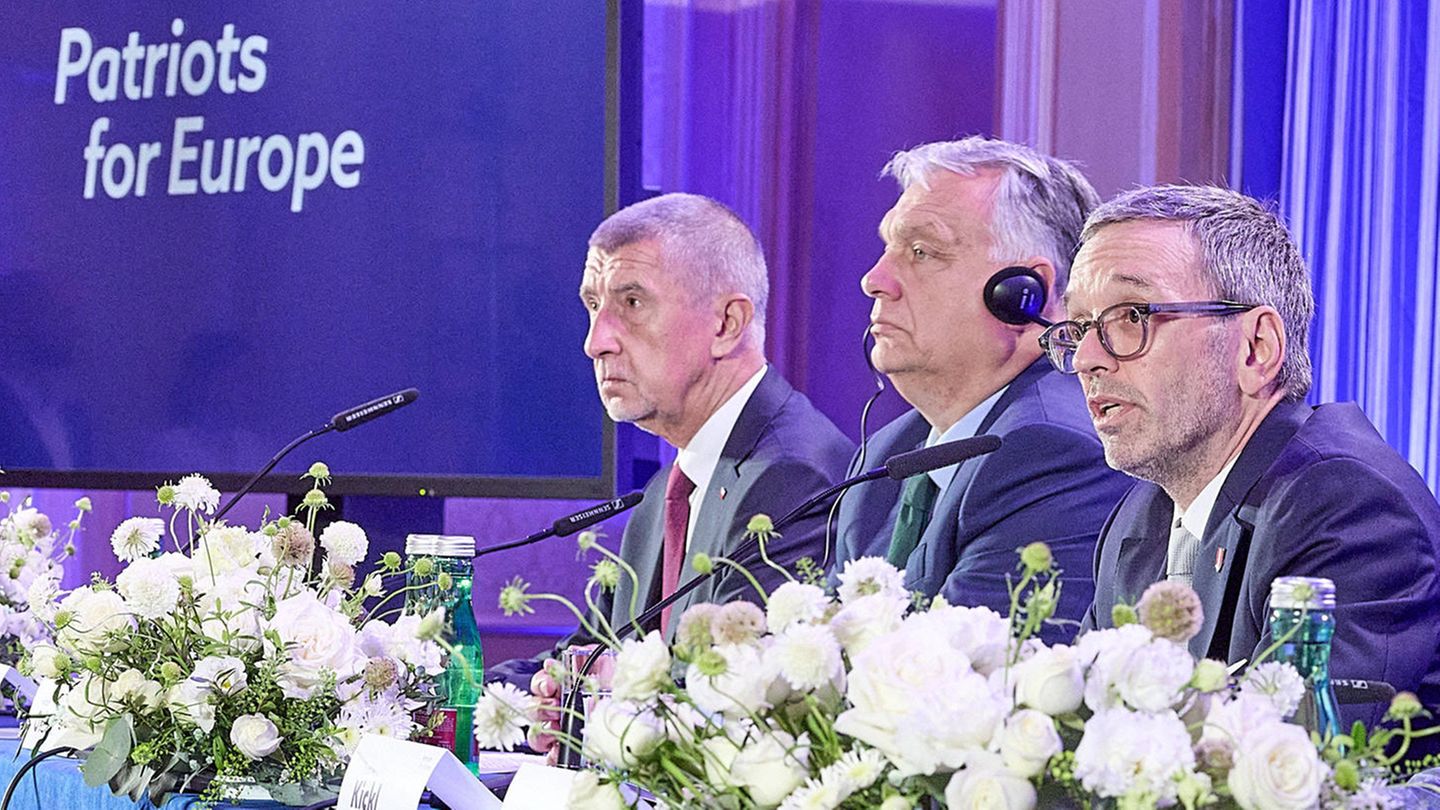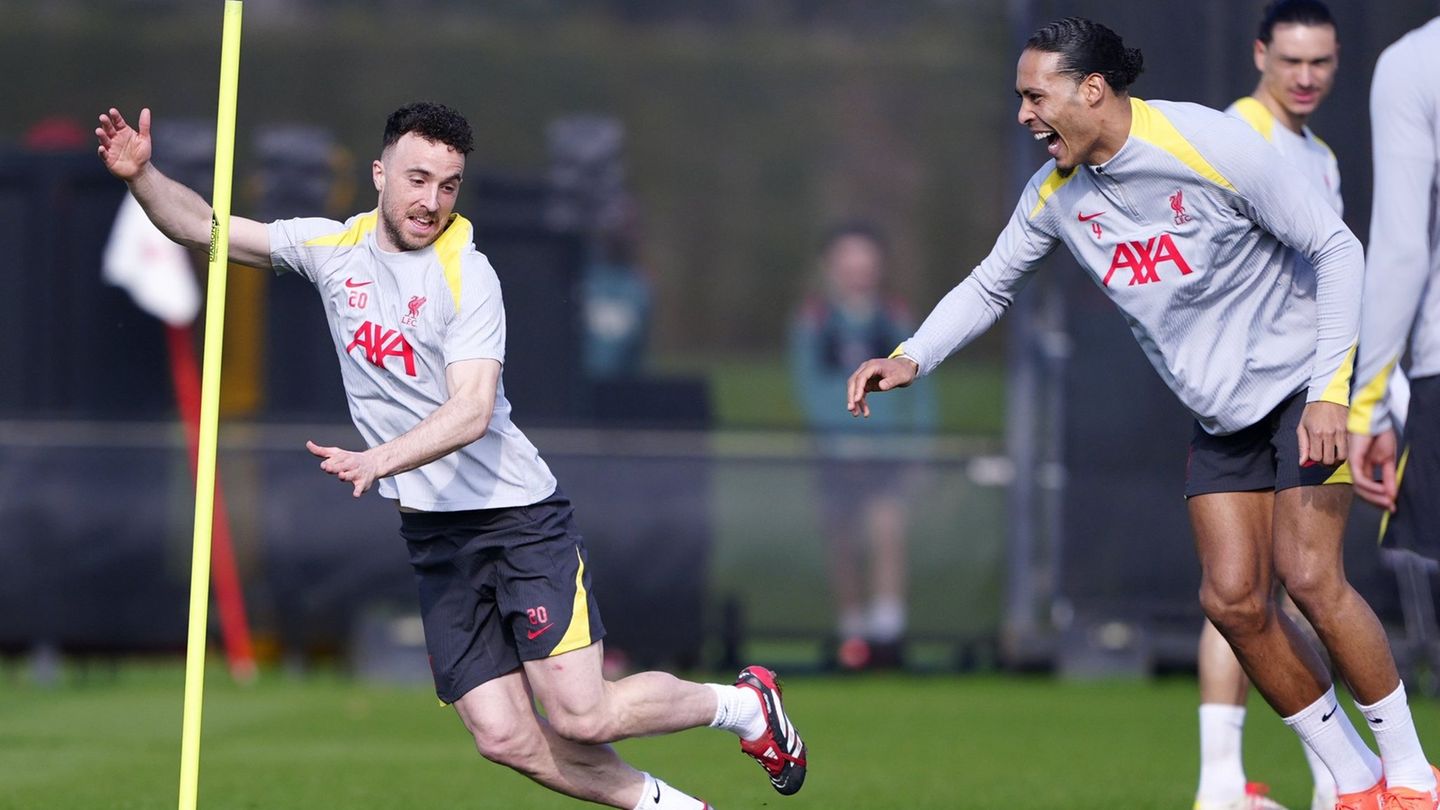Parts of Europe’s right are regrouping as “Patriots for Europe”. But the AfD has no place in this group either.
The right-wing alliance “Patriots for Europe”, launched by Hungary’s Prime Minister Viktor Orban just under a week ago, is forming a new group in the European Parliament. In addition to Orban’s party Fidesz, the right-wing nationalist Rassemblement National from France, the nationalist Lega, which is part of Italy’s government, and the anti-immigration FPÖ from Austria are also part of the group, as representatives of the new alliance said after the founding meeting in Brussels. The German AfD will not be a member for the time being.
The Frenchman Jordan Bardella is to become the group leader. The group must now inform Parliament President Roberta Metsola about the formation. It is expected to be officially confirmed at the next plenary session in Strasbourg next week. At least 23 members from at least 7 countries are required to form a group in the European Parliament. The new group says it will be the third strongest behind the Social Democrats and the centre-right EPP alliance, which also includes the CDU and CSU. According to its own calculations, the group has 84 members. It is made up of members from twelve countries.
Orban, who is also chairman of the Hungarian government party Fidesz, the head of the right-wing Austrian FPÖ, Herbert Kickl, and the chairman of the populist Czech ANO, Andrej Babis, announced the alliance “Patriots for Europe” in Vienna a week ago. According to Orban, the new faction is intended to “change Europe even against the will of the Brussels elites”. Orban recently drew criticism from many EU states with a trip to Moscow. Hungary took over the EU Council Presidency, which rotates every six months, on July 1.
Austria and France also participate
A “Patriotic Manifesto” of the alliance contains the well-known positions of right-wing, right-wing populist and right-wing extremist parties: rejection of migration and the “Green Deal”, no support for Ukraine, which has been attacked by Russia, and dismantling of integration in the EU in order to strengthen the sovereignty of nation states.
The FPÖ has been an established political force in Austria for decades and is currently on the rise. Thanks to their anti-immigration stance, the right-wing populists have a good chance of coming first in the National Council elections in the autumn. ANO founder, former Prime Minister and billionaire Andrej Babis has been seeking to join forces with Viktor Orban for some time. If parliamentary elections were held in the Czech Republic today, the populist ANO would be by far the strongest force.
Marine Le Pen’s Rassemblement National became the strongest force in France in the European elections by a clear margin. In the subsequent new elections to the French parliament, however, the right-wing nationalists unexpectedly only came in third place. For years, Le Pen has been trying to “de-demonize” the RN and to decouple it from its right-wing extremist history and the trivialization of the Holocaust by the party’s founder, Jean-Marie Le Pen. In doing so, she has made the party electable well into the middle class.
The Fidesz party has ruled Hungary continuously since 2010. It suffered a significant setback in the European elections, but has nevertheless remained the strongest party. The right-wing populists oppose the acceptance of refugees and have been criticized for, for example, the dismantling of the rule of law, clientelism and the harassment of the free media.
Since the beginning of Russia’s war of aggression against Ukraine, the Kremlin-friendliness of party leader and Prime Minister Orban has become increasingly clear, including a few days ago with his surprise visit to Putin.
Parties from Italy, Spain and the Netherlands also participate
The Lega of Italy’s Deputy Prime Minister Matteo Salvini has been in government in Rome since October 2022 together with two other right-wing parties. The right-wing populist Salvini became known in previous years as Minister of the Interior for his extremely tough approach to refugees in the Mediterranean and to aid organizations. His hopes of becoming Prime Minister have not yet been fulfilled. In the European elections, the Lega plummeted from 34 percent (2019) to just nine percent.
Vox is in opposition in Spain and wants a Europe of “free and sovereign fatherlands”. The party promotes pride in one’s own nation, preference for domestic products, restrictions on free trade and an end to illegal immigration. It also stands out for its defamation of immigrants, who are often described as criminals and only interested in social benefits. The traditional family is said to be the nucleus of a state that is run in a strictly centralized manner and only has national interests in mind.
Parties from other smaller EU countries are also taking part. These include the radical right-wing party of the Dutchman Geert Wilders, the right-wing populist Danish People’s Party and Belgium’s radical right-wing Vlaams Belang. The right-wing populist party Chega (Enough) from Portugal, founded in 2019, has also expressed its interest.
The AfD remains outside in Europe
The German AfD, which was excluded from the right-wing nationalist ID faction before the European elections, does not initially see its place in the ranks of the new alliance around Orban. AfD leader Alice Weidel ruled this out last Tuesday. There is an exchange, but at the moment that is not an option. She spoke of a strategic long-term project. “We are linked by friendship, we have incredible overlaps in terms of content, but both parties are subject to political and foreign policy and foreign trade constraints that we must take into account at the moment,” said the AfD leader when asked whether her party was not wanted in the alliance.
Expected to be the third strongest force in parliament
The chairman of the German SPD, René Repasi, sees the new alliance as a weakening of Italy’s Prime Minister Giorgia Meloni. Her party belongs to the right-wing conservative ECR group, which is no longer the third strongest force due to the new right-wing alliance.
Source: Stern
I have been working in the news industry for over 6 years, first as a reporter and now as an editor. I have covered politics extensively, and my work has appeared in major newspapers and online news outlets around the world. In addition to my writing, I also contribute regularly to 24 Hours World.




